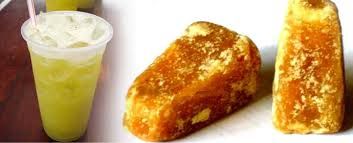Exploring Sugarcane Products: Versatile Utilizes and Benefits
The expedition of sugarcane products reveals a remarkable selection of applications that extend well past the acquainted realm of sugar. As we check out the complex contributions of sugarcane, one might question how these diverse usages can reshape markets and lifestyles in a rapidly evolving world.
Summary of Sugarcane
Although sugarcane is often associated largely with sugar manufacturing, it is a versatile plant with a rich background and many applications. Grown in subtropical and exotic areas, sugarcane flourishes in well-drained soils and cozy environments, adding significantly to several economic situations worldwide. This perennial grass, coming from the genus Saccharum, can expand to heights of approximately 4 meters, showcasing its durable nature.
Beyond its main duty in sugar extraction, sugarcane offers as an essential source for numerous by-products. The fibrous residue, recognized as bagasse, is made use of for producing bioenergy and as a raw product for manufacturing paper and naturally degradable items. Furthermore, molasses, a spin-off of sugar refining, is abundant in nutrients and frequently made use of in animal feed and fermentation procedures.
Sugarcane likewise plays a substantial duty in traditional medicines and social techniques in several areas, illustrating its relevance beyond business usage (sugarcane product). With the increasing emphasis on sustainable agricultural practices, sugarcane is being explored for its possibility in biofuels and carbon capture, positioning it as a key gamer in the change in the direction of renewable energy sources. Hence, the convenience of sugarcane expands far beyond the confines of sugar manufacturing
Sugarcane in Food Products


Beyond sweeteners, sugarcane is the resource of energy-rich products such as jaggery and panela, which are typical raw sugars used in many societies. These products not just sweeten foods however also convey dietary benefits and special flavors.
Sugarcane juice, a refreshing drink enjoyed in several tropical areas, showcases the plant's flexibility. It is frequently eaten fresh or fermented right into alcohols like rum.
In addition, sugarcane fibers, referred to as bagasse, are occasionally utilized to produce food product packaging products, emphasizing the environmental advantages of sugarcane processing. Generally, sugarcane's payment to food products is multifaceted, improving tastes, giving nutritional value, and playing a significant role in culinary practices around the globe.
Industrial Applications of Sugarcane
In numerous industries, the adaptability of sugarcane expands far beyond its culinary applications. Sugarcane acts as an essential basic material in the manufacturing of biofuels, specifically ethanol, which is significantly used as a renewable power resource. This biofuel is acquired via fermentation and purification procedures, supplying a lasting choice to nonrenewable fuel sources and contributing to a decrease in greenhouse gas exhausts.

Moreover, the sugarcane sector has located applications in pharmaceuticals, where its components are utilized in the formulation of various medical items. The all-natural compounds extracted from sugarcane display antioxidant and antimicrobial homes, boosting the efficacy of particular drugs.
Finally, sugarcane is essential to the manufacturing of a series of chemicals, consisting of glycerol and natural sites acids, which Check Out Your URL are essential for numerous industrial procedures. These applications highlight sugarcane's substantial function in promoting commercial sustainability and technology.
Ecological Benefits of Sugarcane
The diverse applications of sugarcane not only improve commercial procedures yet also contribute considerably to ecological sustainability. As a renewable energy, sugarcane cultivation plays an essential role in carbon sequestration, soaking up significant amounts of co2 from the atmosphere. This procedure helps alleviate climate adjustment by minimizing greenhouse gas focus.
Furthermore, sugarcane byproducts, such as bagasse and molasses, use environmentally friendly options to traditional materials. Bagasse, the coarse deposit after juice extraction, can be made use of as a biomass gas, reducing dependence on fossil gas and advertising cleaner power sources. In addition, molasses can be changed into bioethanol, additionally sustaining lasting power initiatives.
Sugarcane farming likewise promotes biodiversity and soil health. Sustainable agricultural methods, such as intercropping and plant rotation, boost dirt fertility and minimize disintegration. The crop's deep root system help in water retention, thus enhancing and supporting local communities resilience Visit Website against drought.
Health And Wellness Advantages of Sugarcane
Rich in crucial nutrients and natural sugars, sugarcane offers numerous wellness benefits that make it a valuable enhancement to a well balanced diet. Its high fiber web content help in food digestion, promoting gut wellness and stopping bowel irregularity. In addition, sugarcane gives anti-oxidants, which fight oxidative stress and anxiety and may lower the threat of persistent conditions.
Furthermore, sugarcane juice is known for its hydrating properties, making it a superb drink choice, specifically in warm climates. The natural sugars existing in sugarcane give a fast power boost, beneficial for athletes and those taken part in physical tasks. It also has essential minerals and vitamins, such as vitamin C, potassium, calcium, and magnesium, which add to total wellness.
Research studies suggest that sugarcane may aid regulate blood sugar level degrees, making it a better sweetener for individuals with diabetes when eaten in small amounts. Its anti-inflammatory buildings can sustain liver wellness and aid in cleansing.
Conclusion
In verdict, sugarcane becomes a very flexible plant with considerable contributions to numerous industries. Its varied applications in foodstuff, industrial usages, and ecological sustainability underscore its importance. The byproducts of sugarcane, such as bagasse and molasses, help with eco-friendly methods, while its wellness advantages improve overall well-being. The complex nature of sugarcane not only supports financial growth yet additionally advertises sustainable growth, highlighting its value in contemporary society.
Although sugarcane is usually linked largely with sugar manufacturing, it is a versatile plant with a rich background and countless applications.Beyond its key duty in sugar removal, sugarcane offers as an important resource for different by-products. Mainly understood for producing sugar, sugarcane is changed right into granulated sugar, brown sugar, and molasses, each serving distinctive culinary functions.Rich in important nutrients and natural sugars, sugarcane provides numerous wellness benefits that make it a useful addition to a well balanced diet. The all-natural sugars present in sugarcane offer a fast energy increase, advantageous for professional athletes and those involved in physical tasks.